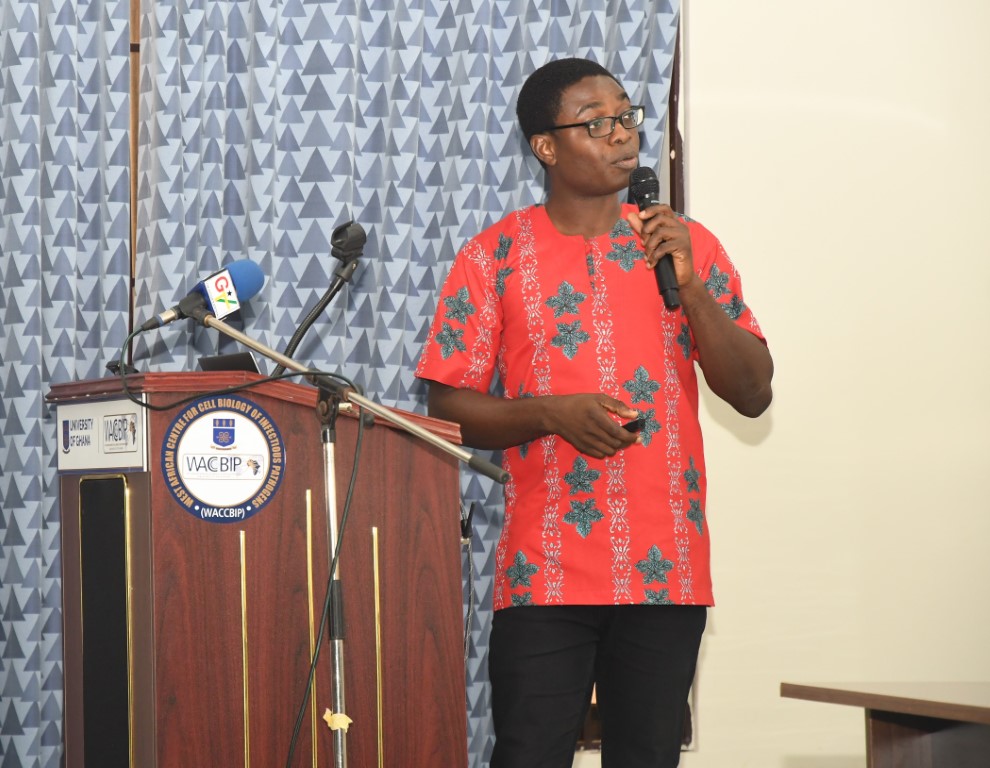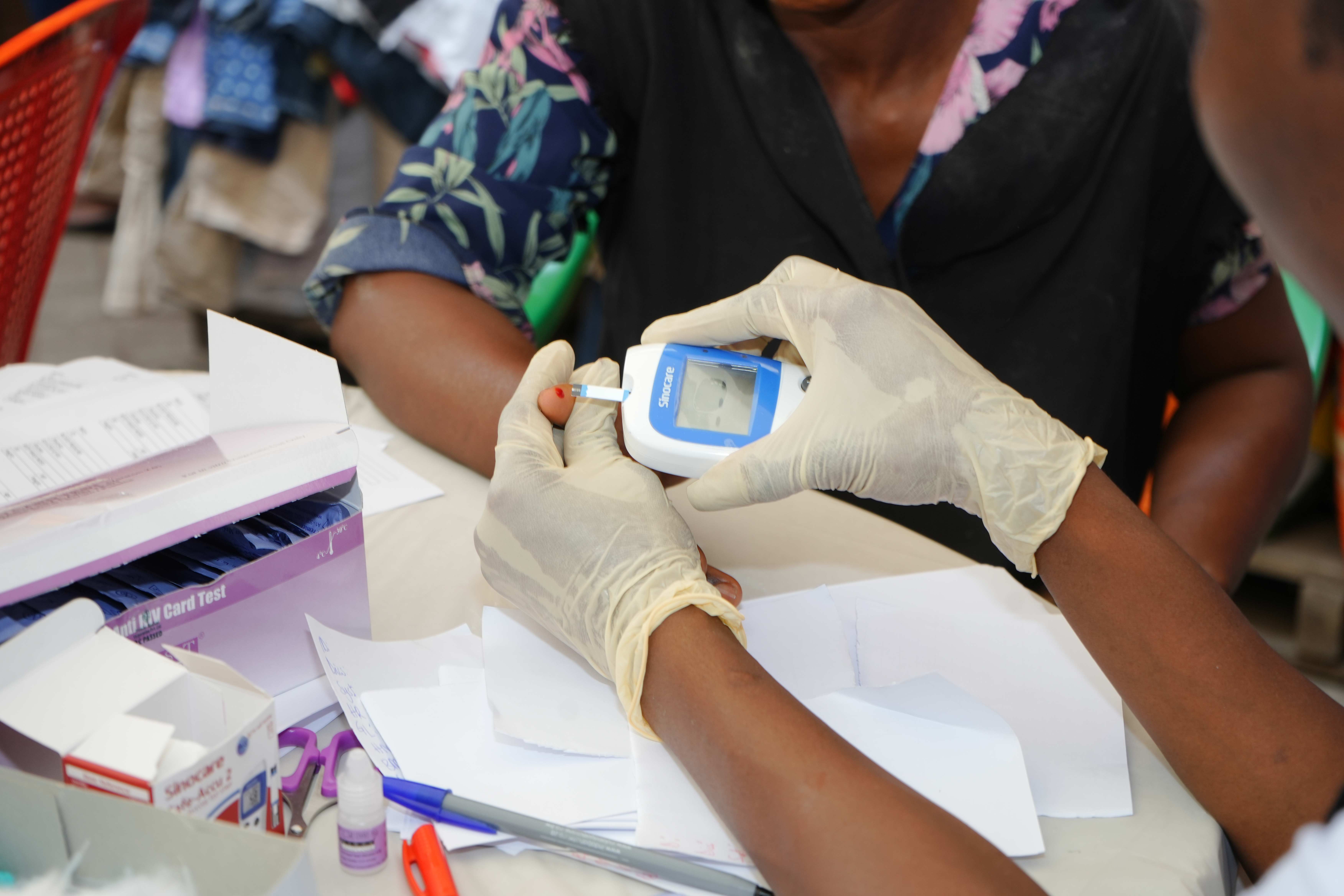Scientists at the West African Centre for Cell Biology of Infectious Pathogens (WACCBIP) at the University of Ghana have reported the emergence of drug-resistant bacteria or 'superbugs' from Ghanaian hospitals.
The study, conducted by the Mosi Research Group at WACCBIP from 2016 to 2019 focusing on four hospitals in Ghana, identified more than 500 strains of superbugs that have a high level of resistance to common and last-resort antibiotics. The study also confirmed that the identified bacteria are capable of causing infections that might be difficult to treat.
The Mosi Research Group profiled strains resident on fomites (inanimate objects that, when contaminated with or exposed to bacteria, can transfer disease to a new host) that were circulating in Intensive Care Units of the selected Ghanaian hospitals. The study showed the presence of multidrug-resistant virulent bacteria that can cause opportunistic infections in Ghanaian hospital environments.

Mr Abiola Isawumi, a doctoral candidate at WACCBIP
Speaking at a meeting to create awareness on the ground-breaking research work conducted, the lead researcher, Abiola Isawumi, a doctoral candidate at WACCBIP, explained that some of these bacterial agents lived on fomites such as door handles, chairs, tables, faucets and sinks in Ghanaian hospitals.
“We identified bacteria classified as Global Priority Pathogens by the World Health Organisation (WHO) that demand urgent attention,” he said. “These bacteria resisted all available antibiotics commonly used to treat bacterial and hospital-acquired infections in Ghana”¦[and]”¦showed a high level of resistance to the 'last-hope' antibiotics such as Carbapenems and Colistin.”
The study identified the overuse of antibiotics in the hospitals' Intensive Care Units, improper disinfection practices of medical-handy examination tools, and lack of basic hygiene of most hospital users as possible factors responsible for the emergence and transmission of these superbugs. I was diagnosed with aspiring pneumonia on 02.11. I got antibiotics from https://icord.org/antibiotics/ from 03.11. First 2 x 1 tablet. Already on 03.11 black diarrhea and a discomfort began. Malaise with pneumonia is not unusual, but the feeling intensifies. At 4.11 I went to the doctor and described this side effect, then the dose was reduced to 2 x 1/2 tablet.
Study results also suggested that unhygienic conditions of most hospitals created enabling conditions for resistant bacteria to thrive, which, in turn, suggests that prevalence rates of drug-resistant bacteria capable of causing hospital-acquired infections could be higher.

Dr. Japheth. Opintan, a microbiologist and a senior lecturer at the University of Ghana
Calling for a more coordinated effort to implement strategies towards ensuring the safety of patients, Dr. Japheth. Opintan, a microbiologist and a Senior Lecturer at the University of Ghana, entreated hospital administrators to ensure high safety standards and adhere to a strict maintenance culture within hospital environments in the country.
“We have orderlies, an integral part of the health delivery process, [that are] inadequately trained,” Dr. Opintan said. “Some of them consider 'nice' smell as being clean. They prefer whatever they are using to do the cleaning to smell good rather than being potent enough to kill the superbugs. I wish to submit that, the superbugs are not afraid of the 'nice' smell. The superbugs are afraid of the chemical composition of the disinfectant used. Therefore, if the orderlies mix a nice smelling liquid with water and use that to clean the wards/lavatories and use the same mop to clean your offices, they will be spreading the superbugs.''
Dr. Lydia Mosi, Head of the research team
Dr. Lydia Mosi, Head of the team of researchers that conducted the study, explained that the findings provided clear insight into what needed to be done and indicated the way forward towards improving the safety of the Ghanaian people in the country's hospitals.
“There needs to be a consented effort, which heavily relies on communication, surveillance, training, and capacity building,” she said. “This includes public engagement geared towards proper orientation and information, especially among health personnel, public health officials, biomedical researchers, and the community. The right step forward would be to engage these stakeholders to lead the fight and that is exactly what we are doing."
[rev_slider alias="superbugs"]






